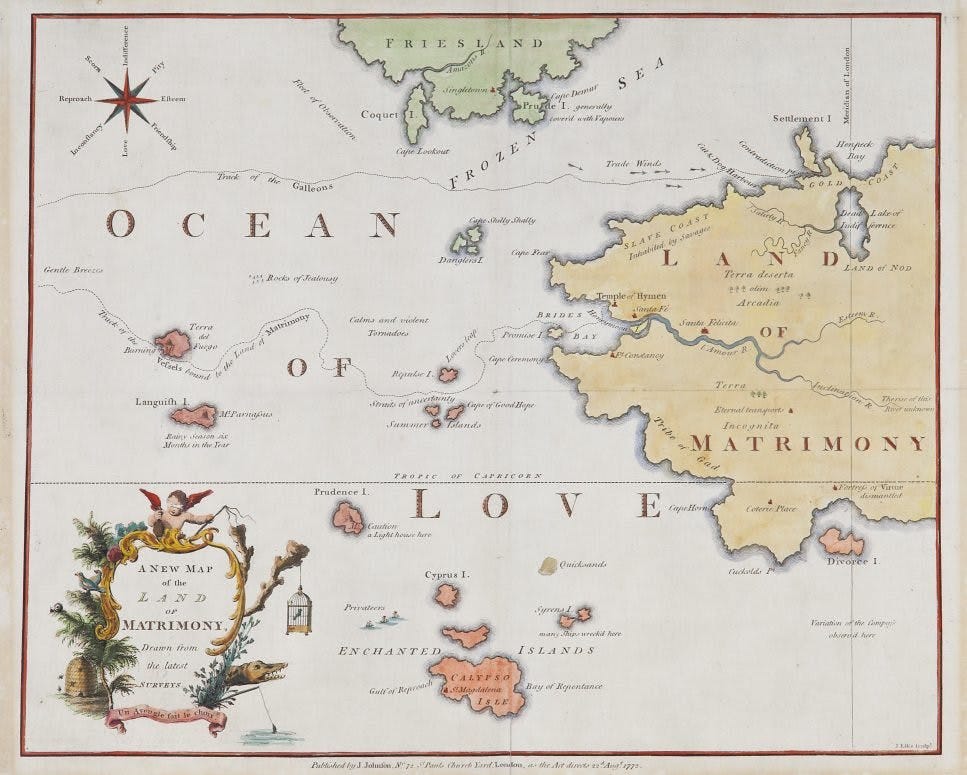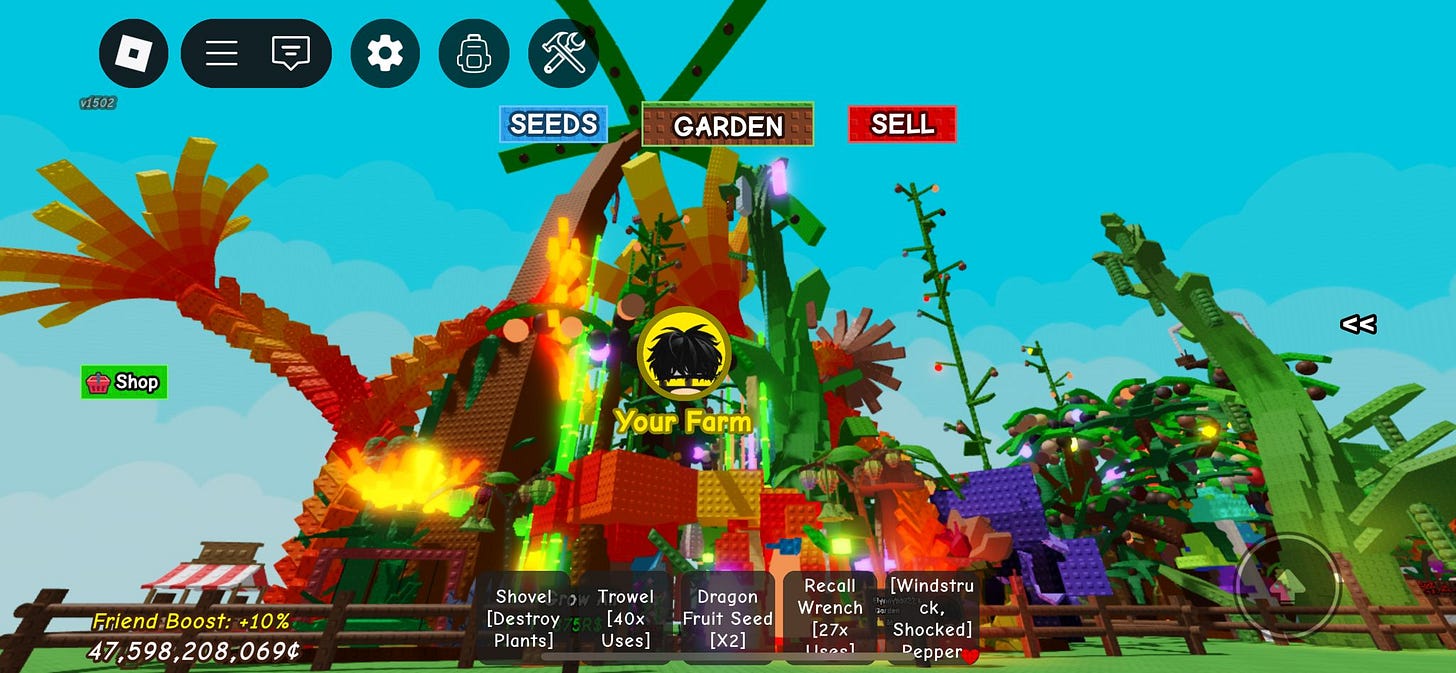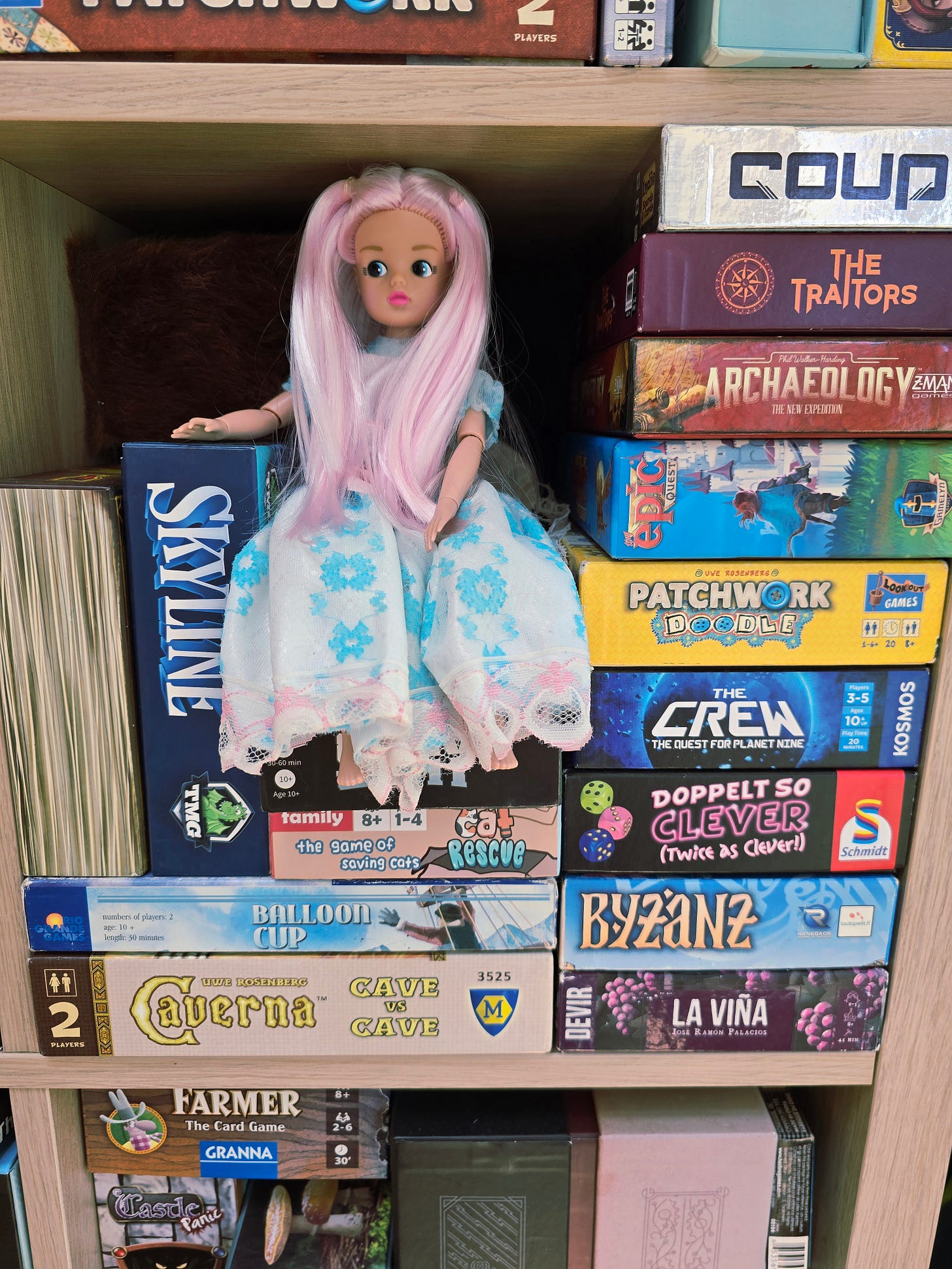Tending the Garden of Autistic Joy: Why World-Building Matters
Why autistic brains are natural world-builders — and how to reclaim the joy when it goes missing
Right now over three million people are tending their gardens in Grow A Garden on Roblox. Virtual gardens with moon mangos, sugar apples and burning buds — mutations carefully nurtured and treasured by their creators. When I hear someone explaining their virtual world with genuine excitement, sharing every detail about what they've grown and why it matters, I'm witnessing something profound: autistic joy in action. These aren't just games or hobbies. They're entire universes built from the ground up, complete with their own logic, beauty, and meaning. The sparkle in someone's eyes when they get to info-dump about their creation? That's the garden of autistic self-esteem growing in real time. And it's been happening since childhood — in bedrooms and playgrounds, with toys and stories, wherever autistic minds have been given space to build their worlds. Many parents of autistic children do this – we listen and we tend those gardens that grow into a world-built sense of self esteem.
When the Garden Goes Untended
But the other side of this is working with late-diagnosed autistic adults who often didn’t receive this attention, praise and encouragement over their world-building in childhood. I often notice this absence when adults describe their childhood lives - how their natural love of world-building got pushed aside as disinterested parents, school rules and academic expectations took over.
In pillar four of the Autistic Culture podcast, the theme is autistic world-building as a core trait of being autistic. Some of you might be thinking, “oh yes that’s definitely me…” but some of you might be thinking, “what do you mean? I don’t engage in world building?!” Read on to find out more about where this finds itself in the everydayness of life and how it turns up in the counselling room.
What autistic world-building means
Autistic brains are natural world-builders. We create systems — fictional universes, colour-coded spreadsheets, sensory toolkits, or entire imaginary cities. It starts in childhood with classic examples such as organising toys into categories or designing elaborate character backstories, but can also appear as collecting keyrings or creating involved stories using playmobil Think back to your childhood - what was different about how you played? World-building evolves into adult life in so many different ways. It could be something as obvious as creating detailed holiday plan projects. It could be playing D&D indulging in special interests, rearranging furniture online, creating games, spreadsheets etc. This isn't just creativity or coping — it's how our brains organise and make sense of the world and reimagine how things could work better. When this gets pathologised as "obsessive" or "inflexible," we lose something vital. But when we lean into it? We design better systems, solve complex problems, and build the world we actually want to live in.
The Missing Sparkle
In the present I find myself with autistic adults who have found a way of world-building in the workplace where they excel in organising systems or coding or managing spreadsheets, but somehow the sparkly autistic joy bit has gone missing. While autistic adults can excel using their world-building skills in the workplace, I just think that there are other universes we can dive into that don’t have the restrictions
So what can we do about this? Well, I know for sure that the counselling session as a non-judgemental space for exploration provides a unique environment in which the seeds of autistic-joy-world-building which may be buried deep, deep down can start to grow. I have seen it happen. People reconnecting with all sorts of things – photography, anime, swords, literature, eels, history, maps, radio etc.
Seeing people blossom into their full autistic selves is an absolute privilege in my work – to see you meet yourself and to celebrate that is just autistic joy!

World-Building in the Therapy Room
The wonderful thing about working with autistic people who have a strong connection with their world-built universes is that aspects of it can be used as resourcing in EMDR. EMDR therapy which is used for processing trauma requires the client to connect with a calm place in their imagination, and if possible also connect with figures as a support during trauma work. There is a tangible energy in pulling upon the resources that autistic clients have already spent so much time building internally. In the past I have used an array of figures to support trauma work including elves, angels, Dr. Who, Harry Potter landscapes etc.
Journal prompts for leaning into your autistic World-Building
Some of these questions are the topics I explore in counselling with neurodivergent adults. I hope you might find them helpful in your own exploration. I’d love to hear what you discover!
Creating Your Own Order
What do you organise that others might not even notice needs organizing?
When do you feel most in control of your environment?
Deep Diving
What topic could you talk about for hours without getting bored?
How do you feel when someone genuinely wants to hear about your interests?
Ask yourself the question – where do you find your ears pricking up regarding a topic of interest?
If you were to wander around the BBC Sounds podcast, where would you most likely end up?
If you lean into an interest already, can you lean into it more? Have you tried Pinterest? Give it a go and see where you end up.
What were you into as a child?
Do you have internalised ableism around the idea of gaming? Can this be challenged?
What TV programmes do you love and what are the ingredients in them that could be expanded into new areas of research?
Have you considered whether you'd like to go to a festival of interest e.g. literature festival, a con?
Can you consider challenging the capitalist ideology of 'always be productive' and indulge in an interest just for the sake of it?
Reimagining Systems
If you could redesign one thing about how the world works, what would it be?
What's your vision for making daily life easier for people like you?
Your Creative Solutions
What have you figured out that works better than the "normal" way of doing things?
When have you surprised yourself with how resourceful you can be?
Building Together
Who in your life actually gets excited about your ideas?
What would you love to create with other people?
A final tip…
Don’t underestimate the autistic joy that can come from manifesting your world-building in visual and aesthetic objects – personally, I love my Sindy dolls and they sit in amongst a large ADHD-inspired collection of board games.
Share your thoughts, I’d love to hear from you!







Your article is like finding sweet water in a desert. This quote in particular:
“I find myself with autistic adults who have found a way of world-building in the workplace where they excel in organising systems or coding or managing spreadsheets, but somehow the sparkly autistic joy bit has gone missing.”
This speaks a little bit to masking, right? Trying to fit in to systems that are extractive to self and planet. And hostile to self and planet.
In terms of finding the authentic sparkly joy: it’s my belief that bottom-up thinking styles (fascination with all elements, and not taking shortcuts), deep dives, and world building can show us a better world… Even in imaginary form first. Because all of the leaps (large and small ) we’ve had as humans usually began as an idea first.
So many late-diagnosed ND adults have been asked to conform to a system which is truly hostile to health (health of self, community, and planet.) What if this didn’t have to be the case?
I meant more that there's a lot of ableist narrative around gaming (e.g. it's for kids, it's immature, you should grow out of it, it's not productive, it's a waste of time, it's not real life, it's not going outside, it's a cause of 'problem behaviour', it's an avoidance mechanism, it's just 'unhealthy' etc.). The ableist narrative paints gaming as:
This narrative often assumes that productivity, eye contact, outdoor activities, or "neurotypical" hobbies are superior or more valid. When neurodivergent people choose gaming as a meaningful activity, it's often pathologised—viewed as a symptom rather than a legitimate interest.
I also find remembering rules for games really challenging, thankfully i have forgiving and understsanding friends who help me out as we play board games together!!